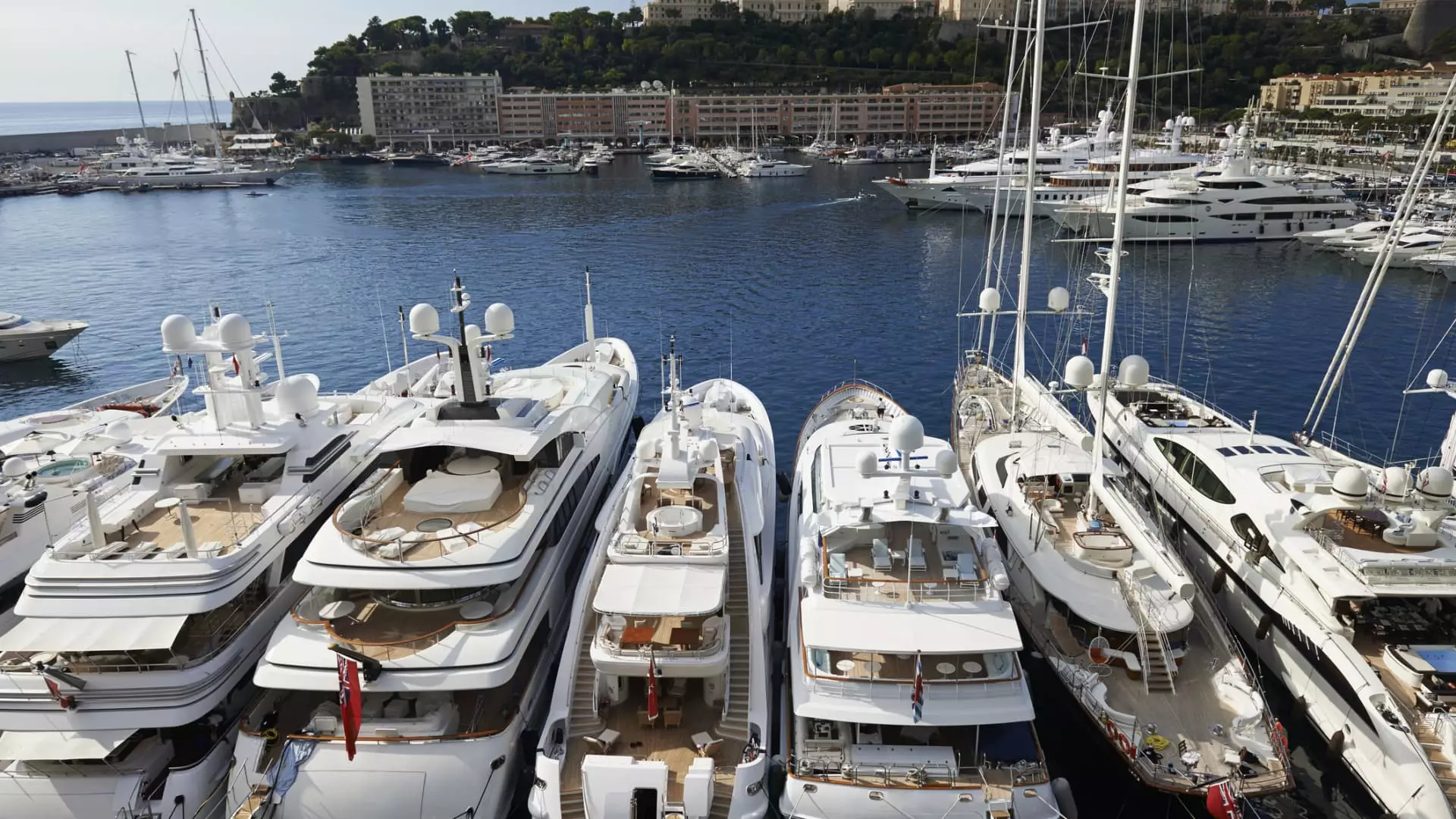The recent announcement of a 15% tariff on European-made goods by the United States unveils a pressing reality: economic policies crafted without regard to the nuances of wealth and global commerce often fall hardest not on the affluent, but on the industries and consumers who rely on international trade. The recreational yacht industry, a symbol of luxury and status, stands at a crossroads, with European shipyards and American buyers feeling the tremors of political decisions that threaten to turn a once-lucrative market into a logistical nightmare. While it’s tempting to dismiss a tariff as a mere fiscal adjustment, beneath the surface lies a deliberate, strategic shift that disproportionately advantages the already powerful—those capable of strategic tax evasion.
The European boating industry’s warning about the impact of these tariffs rings loud and clear: their export market to the U.S. is critically threatened. Yet, the real story isn’t just about economic loss; it’s about the social dynamic that unfolds when wealth is used as a tool for avoiding the costs imposed by unintended policies. The super-rich, who can comfortably absorb a 15% increase in transit costs, might appear unaffected on the surface. But the true effect goes beyond mere numbers: it accentuates the growing divide between those who can adapt and those who are left vulnerable. This isn’t a simple case of free-market efficiency—it’s a reflection of structural inequalities where those with the financial means and legal knowledge sidestep the regulatory hurdles altogether.
Strategic Maneuvers: The Wealthy’s Playbook Against Tariffs
While the tariff targets European manufacturers, a sophisticated subset of American buyers and shipping companies are likely to employ tactical loopholes to escape the financial burden. Registering yachts in foreign jurisdictions—often known as “foreign flagging”—is a well-established method, and it’s poised to become even more prevalent. Countries like the Cayman Islands or Malta offer legal avenues to avoid tariffs, with owners moving their vessels just outside national borders to circumvent taxes, despite the costs and restrictions involved.
This form of evasive strategy isn’t just about saving a few percentage points; it represents a calculated redistribution of wealth and tax burden, favoring the globally connected elite. The cost of registering a yacht abroad, typically between $5,000 and $20,000, pales in comparison to the potential savings on multimillion-dollar vessels. Legally, owning a vessel registered in another jurisdiction means the yacht morphs into a ‘privately owned’ foreign entity, often entering U.S. ports as a transient vessel and sidestepping tariffs—from which the average consumer or small boat owner remains excluded, stuck paying the full price.
What this reveals is a broader narrative: policy measures like tariffs, rather than leveling the playing field, often exacerbate existing disparities. While smaller boats and less affluent purchasers are crippled by increased costs, the wealthy continue their unimpeded access to luxury, leveraging legal tools and international agreements. This isn’t just a matter of economic strategy; it’s a reflection of a system that privileges privilege—a subtle but powerful form of economic inequality disguised as strategic innovation.
The Economic and Social Implications of an Escalating Divide
This widening gap highlights a dangerous trend: policies meant to protect domestic industries or negotiate fair trade often serve as a boomerang, reinforcing the stratification already embedded within our economic system. The anticipation that U.S. yacht builders like Westport or Trinity might see increased demand seems optimistic, yet it glosses over the fundamental truth that luxury markets are self-selecting and inherently resistant to uniform policies.
Moreover, the existing slump in preowned yacht sales, compounded by the new tariffs, underscores a deeper problem: the fragile nature of the luxury market, which relies heavily on global supply chains and international trade. The wealthy, armed with legal acumen and strategic flexibility, will continue to circumvent restrictions, leaving behind the middle and lower classes—not in terms of yachts, perhaps, but in economic resilience and social mobility.
The true question is whether these policies serve the majority’s interests or simply entrench the power of the already privileged. The tactics employed by affluent buyers to evade tariffs echo broader societal issues: tax avoidance, regulatory arbitrage, and economic disparity. It’s a stark reminder that in the current global economic landscape, privileges are often protected through strategic loopholes rather than social policy, creating winners and losers based on their ability to navigate the system’s complexities. The challenge—and perhaps the responsibility—lies in ensuring that policies are crafted with fairness at their core, rather than serving as catalysts for further inequality.


Leave a Reply